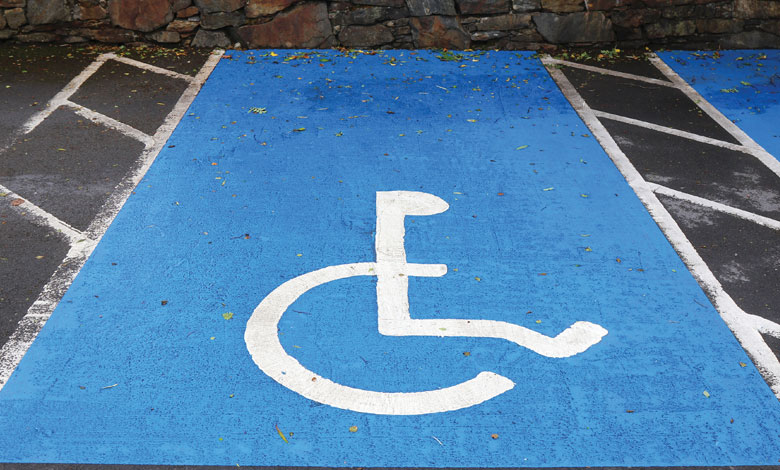Human Rights Strategy for Disabled People

The Government has published the National Human Rights Strategy for Disabled People 2025-2030, setting out a new cross-departmental approach to implementing Ireland’s obligations under the UN Convention on the Rights of Persons with Disabilities (UNCRPD) and advancing equality, participation, and choice for disabled people.
This is Ireland’s first national disability strategy since ratification of the UNCRPD in 2018 and represents a decisive shift toward a whole-of-government model. The strategy aims to move away from fragmented delivery and embeds disability rights across every department, local authority, and state agency.
The framework sets out five pillars: inclusive learning and education; employment; independent living and active participation; wellbeing and health; and transport and mobility. Each pillar contains measurable commitments to be implemented through two-year programme plans of action, detailing lead agencies, timeframes, and performance indicators.
Oversight will rest with the Cabinet Committee on Disability, supported by a senior officials group and a delivery and monitoring committee that includes representation from disabled persons’ organisations (DPOs). The Department of the Taoiseach is to coordinate cross-government implementation, underlining the strategy’s political weight.
The strategy’s vision is to ensure that disabled people can live “a life without barriers”, participating fully and equally in Irish society. Its three underpinning values of equality, participation, and choice align with Article 3 of the UNCRPD, which emphasises respect for inherent dignity, autonomy, and inclusion.
In practice, this means embedding universal design, accessible communication, and participatory policymaking into all state functions.
Pillar 1: Inclusive learning and education
Led by the Department of Education and Youth, the strategy’s first pillar commits to progressively realising an inclusive education system for all learners. Actions include extending the access and inclusion model to all early-learning settings, developing a national roadmap for inclusive education, and enhancing teacher and special-needs-assistant training.
A focus on smoother transitions from early learning to school, and from school to further education, apprenticeships, or work aims to raise retention and attainment levels. The Department of Further and Higher Education is to expand flexible pathways and evaluate supports for students with intellectual disabilities across third-level institutions.
Pillar 2: Employment
Employment remains one of the most significant inequalities facing disabled people: just 49 per cent of working-age disabled people are in employment, compared with 71 per cent of others. The strategy’s employment pillar, led by the departments of Enterprise, Tourism and Employment, and Social Protection, seeks to narrow this gap through public-sector leadership and private-sector engagement.
All public bodies will be required to meet a 6 per cent statutory employment target for disabled staff by 2025. The Government will expand work-placement programmes, strengthen the role of disability liaison officers, and reform the disability allowance to remove disincentives to work.
For the private sector, awareness campaigns and employer forums will promote inclusion, while schemes such as WorkAbility and EmployAbility are to be scaled up. The Wage Subsidy Scheme will be extended to cover workers who acquire a disability while in employment.
Pillar 3: Independent living and active participation
Recognising that equality is about more than access to services, this pillar promotes independent living, housing, and participation in community, cultural, and political life. The strategy pledges to enhance individualised supports, deliver the National Housing Strategy for Disabled People 2022-2027, and improve access to justice and community engagement.
Disabled people are to be supported to take part in arts, sport, and civic life, with public bodies required to apply universal design standards to facilities and events.
Pillar 4: Wellbeing and health
Disabled people continue to face poorer health outcomes and barriers to care. The Department of Health, working with the HSE and the Department of Children, Disability and Equality, will make mainstream health services more inclusive. Priorities include improving mental health supports for children and young people, strengthening safeguarding systems, and ensuring equitable access to oral health, audiology, and screening services.
A cross-government workforce planning initiative, coordinated by the Department of the Taoiseach, aims to expand training and recruitment for therapists, psychologists, and other specialists to address skills shortages.
Pillar 5: Transport and mobility
Mobility is central to independence and participation. The Department of Transport will apply a “whole-of-journey” universal design approach to infrastructure and public transport services, ensuring accessibility from door to destination. For people unable to use public transport, new personal-mobility supports and accessible community transport options will be introduced.
Capacity and governance reforms
To sustain delivery, the strategy includes capacity-strengthening measures across three areas:
- Accessibility: Coordinated action led by the National Disability Authority to embed good practice in universal design.
- Research and data: Establishment of a disability research and data advisory group and a national disability survey led by the CSO.
- Stakeholder engagement: A formal framework to support ongoing dialogue with DPOs and disability stakeholders.
Three strategic focus networks on digital and assistive technology, cost of disability, and intersectionality are to convene experts and produce policy recommendations for future programme plans.
The Government says it will also undertake a whole-of-government review of disability expenditure, ensuring that investment is targeted, efficient, and evidence-based.
Ministers describe it as a “step-change” in how Ireland conceives of and delivers disability policy; moving from specialist services to a mainstream-first approach that integrates inclusion into everyday public systems.
Launching the Strategy, Taoiseach Micheál Martin TD described it as “a whole-of-government framework for the implementation of the UNCRPD” and affirmed that delivery “will demand a genuine and significant collective effort”.
Tánaiste Simon Harris TD has highlighted the need to “do better for disabled people” through accessible mainstream services, while Minister for Children, Disability and Equality Norma Foley TD pledges that “nothing about us without us” will guide implementation.
By 2030, the Government aims to have transformed how disability policy is designed and delivered ensuring that every department and agency sees inclusion as part of its core business. The strategy is both a policy roadmap and a governance test, however, progress will depend on coordinated leadership, sustained investment, and an unwavering commitment to equality in practice as well as in principle.





